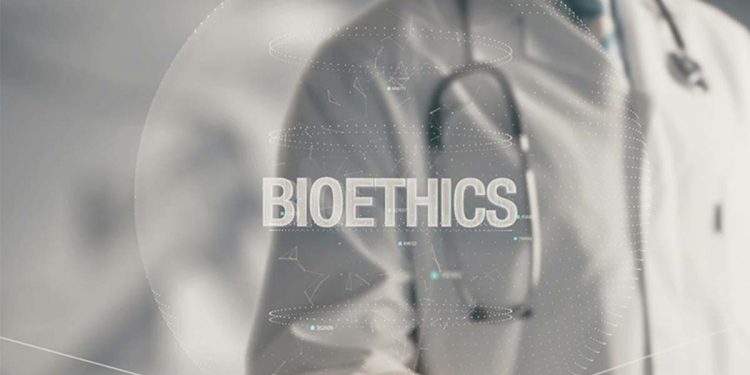Covid – 19 pandemic opened the medical professionals to the most challenging ethical issues which raised so many questions. Is it safe to conduct speedy experiments to develop vaccines? Is it safe to experiment on volunteers with a high fatality rate of virus? Has the focus on covid-19 patients increased the deaths of patients with different illnesses? Are doctors being less humane by restricting the family members to meet critical patients? Eradicating the ethical issues in these developing times is difficult, but philosophers, lawyers, medical professionals, and the government are working to find safer and ethical ways to protect living beings through the study in Bioethics.
What is Bioethics?
Bioethics, which emerged in the 1970s, is a study of moral and ethical questions in the field of science, biotechnology, healthcare, public policy, law, clinical research, and philosophy. From birth to death, multiple ethical dilemmas can be faced by a person whose decision can impact the lives of other living beings. This discipline addresses debatable issues on different aspects of life such as abortion, surrogacy, brain death, scarce medical resources, euthanasia, organ donation, and refusing medical care for religious or cultural reasons.
What does it mean to be human?
Historians and philosophers argue how the massive boom in technology and AI is posing a threat to humanity. Yuval Noah Harari, a historian, has mentioned in one of his famous interviews “AI and biotechnology can destroy what it means to be human.”
Cloning, gene therapy, genetic engineering, artificial wombs, and many more scientific developments are manipulating basic principles of biology. Not only humans, but it also violates animal rights by using them for experiments and medicines.
Principles of Bioethics
In 1979, Four basic principles were introduced and proposed by Beaucham and Childress. They are :
Autonomy: Without any external pressure, a person agrees on the consequences of his actions and is clear about his intentions which match universal attitudes. It allows a person to choose his treatment with careful consideration of possible future results.
Beneficence: The act should benefit a person. Any action undertaken should minimize the risk of harm with maximum benefit.
Non-maleficence: No damage should be done to other persons. Follow the path that can avoid any damage to other living beings.
Justice: Do not discriminate between populations and provide immediate care to the vulnerable population.
In the last 40 years, with development in technology and science, revision of these principles has been desired. Principles like human dignity and the sanctity of life have been highlighted. Further discussion is needed on ethical values with regard to risks and benefits for research participants.
Why does it exist?
“Bioethics increasingly has implications for many areas of people’s lives and it is important to identify common ground around which controversial discussions can take place”, mentioned former secretary-general of the United Nations Mr. Ban Ki-Moon. Let us study the importance of the discipline of bioethics.
- We acquire our sense of right and wrong in childhood. Bioethics plays a similar role, in determining acceptable behavior and unacceptable behavior in biology. There is a need to balance these ethical norms to protect basic animal and human rights. Bioethics mitigates any ability to violate these rights without impeding any future research.
- The world has a history of unethical and atrocious experiments following the deaths and suffering of countless participants. It is necessary to regulate and govern these experiments through moral values and public policies to prevent any harm to society. Ethical standards ensure a progressive society without any threats. Public policy protects the rights of individuals, making researchers and professionals accountable to the public.
- Ethical values in research also promote collaborative efforts and teamwork. Trust, fairness, doctor-patient confidentiality, factual disclosure, respect, and fairness are some of the necessary ethical norms in research. Misrepresentation and falsifying of data are punishable under ethical norms.
Promoting research for the overall development of society is necessary. But it should be not done at the cost of a living being. Addressing the problems with scientific development helps us find more sustainable ways to grow. As we encourage discussion and application of bioethics, it will protect our generation and future generation from being exploited.











Discussion about this post